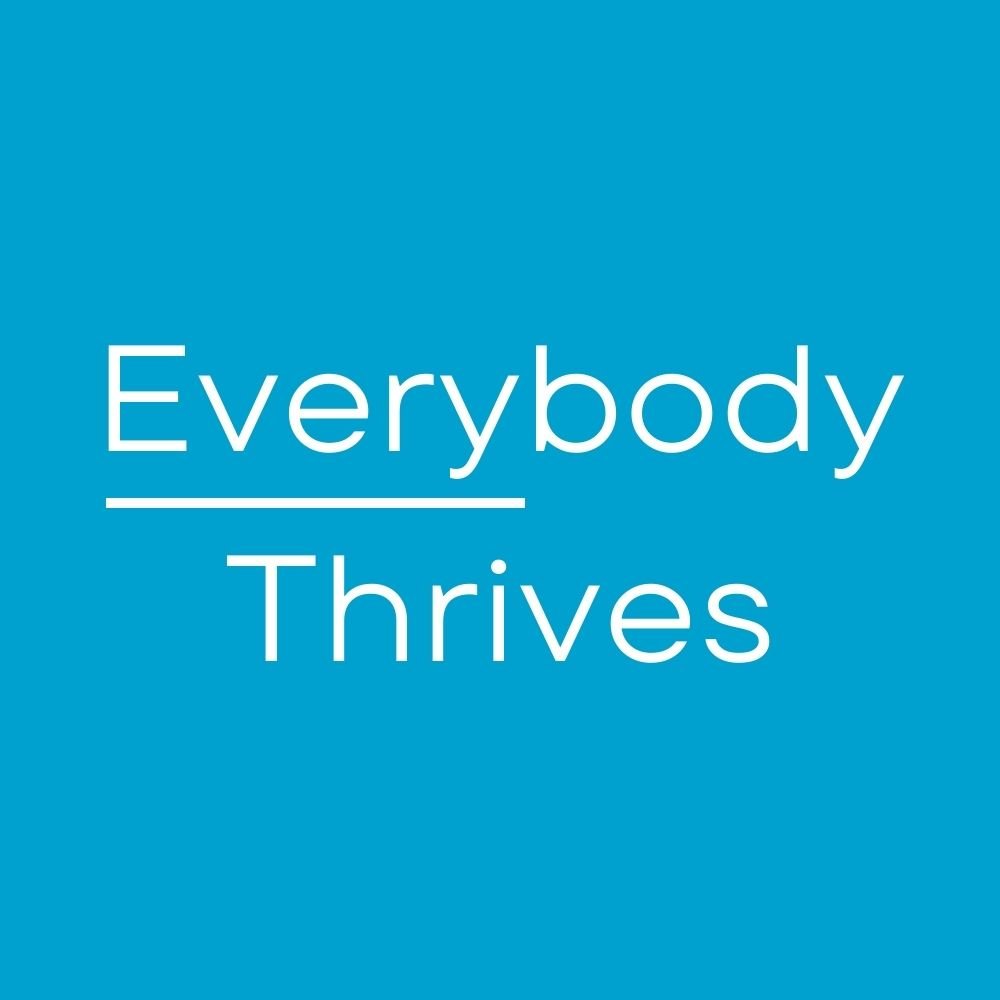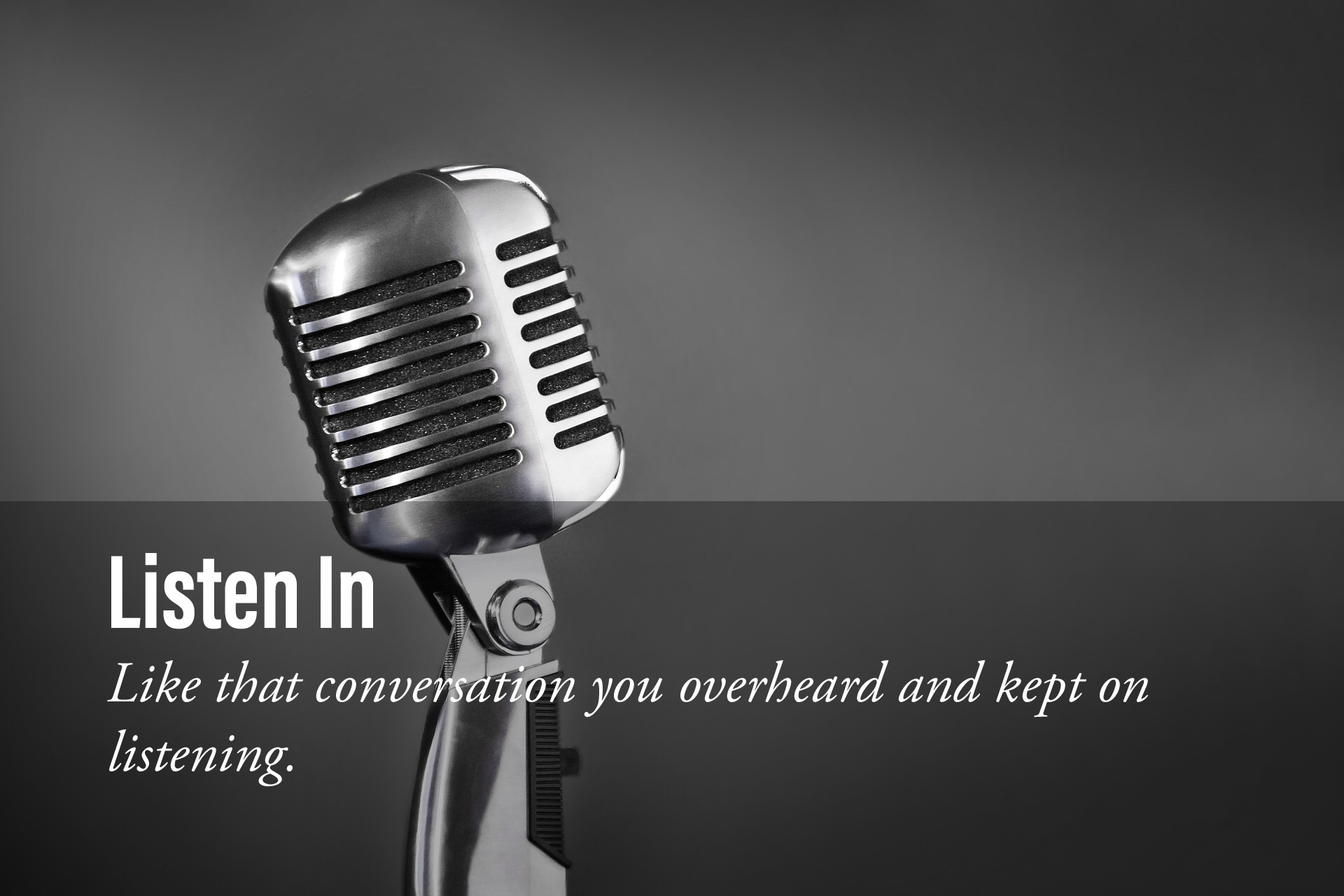Feel free to eavesdrop on Joe's conversation with his KPMG colleague Gail. It takes place in the hubbub of KPMG's on-site coffee bar. (Conversation lightly edited for clarity and length.)
Hi Gail, so tell me...what makes you smile?
There's one thing in particular that always makes me smile, and that's seeing good in the world. I know it sounds pie-in-the-sky, but I love to see random acts of kindness or people who go out of their way to do something for somebody else. Especially in the climate that we are in now... It gives me hope. You read headlines and see the news, but then you see these stories about people who just genuinely, without any agenda, want to do good.
I think a lot of people would agree with that. And I wonder why, if you look at the news coverage, that's not the case. The stories are often covering the more negative aspects and something that would make you feel good is like a side segment.
Right. It's not the meat, it's like the parsley on the side.
Obviously, they know what they're doing so there's something about human psychology...
Apparently, evil sells papers!
Tell me what you do, but explain it to me like I'm a 5 year old.
I should first start by explaining what my department does, because I help them: When a person is hired into my company at a high-up level, or when somebody gets promoted – which is getting a new set of responsibilities and moving up in their company, and they’re promoted to a high-up level, those people come through my department in a way. My department is the one that asks, "Okay, is this somebody that we want to play in our sandbox?" And there's a lot that goes on with that. Metaphorically, they may have to ask that person's parents. Or maybe their friends.
So, I help my department do those things more efficiently. ‘Efficient’ means you are doing something in the fewest possible steps and without wasted energy or effort. You know how your mother will say, “Don't waste the water” when you brush your teeth? It’s like that – I help them to not waste the water. So that's what I do...explained for a 5 year old!
That's great! Now take a moment. Now if you could distill the essence of your role into about 5 words, what would that be?
I would say, "Helping them be more efficient."
Great. I'm sure that is of great value to your team and the company.
(Laughs) I’d like to think so! It was a new role, actually. As my now-boss explained it during my interview with her, she knew there was probably a different or better way of doing things, but no one had time to stop their day jobs or take a step back with fresh eyes and really look into what could be done. So my position is like an advisor, project manager, and strategist all rolled into one. I love that mix, and it's really enabled me to use all of the skills I love to use!
We've experienced the same thing on our team. You almost do need to bring in a new person.
It's been really cool. And I remember I would ask “Why” a lot when I started – sometimes I still do. If you’ve never been to a Six Sigma Yellow Belt training, one of things they talk about as a strategy is to ask why - keep asking until you actually crack the nut and get to the seed of the issue. We made a number of process changes that way, by realizing the answer led back to either a process that no longer existed, or the old “That’s just the way we’ve been doing it” rationale.
I know they don't mean it this way, but I think that technique could be used for self reflection. Asking, "Why am I doing that?" And the first answer is just on the surface. So you peel the onion by asking more why questions. In this way, you get to the core issue, which you would not have had access to unless you really thought about it. Asking why to get to that kernel of truth - that's a very powerful technique.
Ha-YA! (hands thrown up, Karate-style)
We were talking about before how we both really enjoy visual metaphors for expressing things. And you started to tell me a little bit about a campfire "incident." Let's just call it "the incident..."
YES!!! Campfire-gate!
Can you remind me a bit about that and how it reflects some of your outlook and philosophy on your career and life?
There are actually two parts to Campfire-gate.
Part 1
The first part has to do with how if you try to put out a fire, sometimes you may think it's out but it's still actually burning. This happened the first time my husband and I went camping in Vermont. When it was time to go to bed, he gets water and pours it all over the fire – LOTS of water. There’s sizzling, and steam is coming up...
Must be out!
It's out, right? So then...this still makes me laugh when I think about it today. We're in the tent, and then all of a sudden we're like, "What's that glowing outside?" My husband opens the tent and sure enough, the fire is back!
Now the logs had been wet, there had been steam - there was no fire when we went to bed. But I guess that hottest layer of embers beneath was so strong it burned right through the layer of moist ash and wetness! It's not like the fire was blazing, but it was back. It was glowing.
Part 2
The other part of Campfire-gate was building a fire. My husband’s a guy, so of course he's all, "Yeah, the bigger the fire, the better!" He arranges a bunch of huge logs in a nice teepee shape and puts some pieces of crumpled-up paper underneath - I think he might have even poured tiki fuel on everything. He lights the fire, and of course, it's blazing! And he's all proud of himself.
So we're setting up the rest of our campsite and getting dinner ready, and I notice there's a lot of smoke over at the campfire. I say, "It seems like it's kind of going out." And he's like, "No, no, it's fine." So long story short, yes – it actually died.
Once that initial blaze happened, there was nothing to keep it going. Because the logs were so big, the fire couldn't burn through the outer layer quickly enough so it gave way to a bunch of smoke. And my husband tried several times to get the fire going again with more tiki fuel and more crumpled paper with the same result – a huge initial blaze, then smoke and death. I didn’t want to tell him what to do, but eventually I suggested what I remembered from Girl Scouts about using kindling and smaller logs. At that point, he started focusing more on building the base of the fire first and not so much a big blazing fire right away!
The point is you can have all kinds of great ideas and great visions of what you want, but you can't start there. You have to build that base that's going to sustain whatever your goal is. Otherwise, you may start off really hot, but that fire probably won’t sustain itself. The better thing to do is to start off with small steps. There's a quote that I heard somewhere:
Q: How does a person move a mountain?
A: One stone at time.
The obvious thing that people will think about from that story is relationships. Some relationships start off and "it's so amazing" and "I can't believe this, it feels like this is love," but if there is nothing to sustain that, more often than not those fizzle out versus something that may start more slowly, but has real staying power over the years. And I think it also applies to business. If you just have a lot of sparks and colorful whiz bang mottoes, but there's no depth, will that really be able to sustain itself once there are difficulties?
That's a good tie-back to the first part of Campfire-gate: When you have a passion or desire that’s strong enough, no matter what you pour on it, it's still going to burn through. If it's in you to be or to do something, you can try to stifle it a million different ways and it doesn't matter. It's still going to find a way to ignite and to push through into your life.
I've seen that with friends and family where a person is going after something they are passionate about and not what society tells them they should want or what their parents or partner wants them to want. When this happens, even when there's obstacles and people are trying to rain on their campfire, they are very resilient. When certain avenues get closed they find other ones. Their will is so powerful because it's their fire. On the other hand, if they never really wanted it and they encounter resistance, they are more likely to say, eh, it's probably not going to work anyway. It wasn't YOUR passion, so why would you fight for it?
Right, there's no fire there. That reminds me of something that happened earlier in my career. I had been asked to help set up a remediation plan in a completely different department. It was a skill, but not really a passion. It was what I like to call hard-core project management - spreadsheets and tracking issues along with their resolutions. That’s not something that really drives me, but I recognized it as an opportunity because I had been picked by leadership and they were relying on me.
There were different work streams that were part of this project. And I remember discovering a workstream that was focused completely on communications. I've always loved writing - the idea of putting words together and using words to engage people and give people information. So I found a way onto this communication work stream and ended up being involved in that. That’s when I started to actually enjoy what I was doing on that project.
The point is even though the environment wasn't something I would have chosen for myself, through the passion I had for what I was interested in, I found a way to still help the greater goal – in a way that spoke to me.
I think that is pretty profound because if you think about it, the idea of a perfect job is a unicorn, and it is very powerful to be able to figure out parts you have that can fuel the parts that maybe aren't exactly the things that you are interested in. This can help move you and inspire you to do an overall good job versus I only want do what's exciting for me. That's not really going to take you far.
Because you are getting paid to help somebody accomplish a goal, so it’s not about your own agenda. Sometimes you do have the latitude to say no or help drive the direction of things, but if you don't, you have to find a way to be impassioned by the desire to do what you’ve been asked to do, and do it well. At least that’s how I see things.
I think another thing that your fire and passion metaphor brings out is that if you are not aware of that yourself, it will be a lot harder to find that or seek that out in what you are doing. Once you know what that is that's incredibly powerful in terms of what you can accomplish.
You kind of have to silence the outside voices. There are situations where parents are telling kids what they should do in life – such as being married, having children, or living a certain lifestyle. Or situations at work where people define what you must do to consider yourself successful – such as having a certain title, position, or salary. I think everybody is an individual; you really have to figure out what works for you. What makes you comfortable? If you are always trying to do things just because everyone else says you're supposed to do them, you're not going to feel comfortable in your own skin.
I've experienced that, where I've listened to the societal messages, but they didn’t make me comfortable in my skin. Take vertical movement in an organization, for example. I've never really subscribed to the whole notion of HAVING to constantly climb and rise higher. My passion has always been being happy, using my skills to contribute, and learning along the way. My career may be more like a spiral staircase: I like moving around and seeing the company from different angles. If I happen to pick up a new title along the way, that's great! But my focus is on being happy first and foremost. I had a fortune cookie message hanging on my fridge for a long time that said, “Do what you love, and the resources will follow.”
How did you come to these realizations about what's important to you, what your strengths are and your passions?
Well I was always kind of an old soul, so I think I've always been pretty self-aware. I always knew I wanted to help people, and writing has also always been an interest. So for me, the trick has always been finding an outlet that will pay the bills, but will also allow me to do those things as the day job - even if there are other responsibilities involved.
I think my career has been very non-traditional. With the exception of my first role out of grad school – which was a 2-year management rotation type of deal, I don't think I've ever held a role that someone else was in before. It was always something new where someone had realized there was a need and created a framework of a position that I happened to match, or someone had seen the mix of skills I brought to the table and realized they needed a position that leveraged those skills. So it's really been a combination of learning, figuring out how to channel my passions into a career - and in some ways having people figure it out for me. Meaning, they saw me and said, “Gail I think you'd be great doing this,” even if I couldn't necessarily see that in myself at first.
After my position was eliminated at my former company, when starting to look for a job I realized it was a little scary not having a career that fits in a box, because – no offense to my recruiter friends – when you don’t fit neatly into a functional box and you try to explain your job history to a recruiter, their eyes glaze over. I remember talking to a mentor within my current company and saying, “You know, I have all of these skills, but I think I should choose one function and try to get on that track, because otherwise it's going to be hard to fit into a ‘box’ going forward.” He shook his head and said, “You don't have to choose; those special, unique roles are part of your DNA and you can find them.” He was absolutely right. It may take a little more work in terms of navigating and finding your way, but if you get good people behind you who know what you are capable of, you don't have to choose.
I feel like your mentor tapped into something really wise, which is often we set up a false dichotomy or choice, A or B. But really there is C, D, E, F and G. It's kind of like that line Ricky Bobby learned from his dad, "If you're not first, you're last." And much later his dad says that's the dumbest thing I ever heard. You could be third, fourth, or fifth. We often do that to ourselves. If I can't do this, then that's it. It's over. Or these are the only options I have to succeed. But there may be an infinite number of options you haven't thought of yet. So we are almost putting ourselves in our own kind of prison.
The prison of life!
So we've heard a little bit about what makes you smile, and learned a lot more about your career progression and your philosophy with the fire metaphor, one other thing I'd like to ask you is what is your poison or your Kryptonite? What is that thing if someone makes the mistake of asking you about it, you're going to hold them hostage for an hour talking about it?
If anybody asks me about Aruba, forget it! I will talk your ear off about how much I love it, how many times I've been… That's something that is really....I can go on and on talking about Aruba.
I say this about Hawaii, but I think Aruba would apply equally. No one comes back from Aruba and says, "Pfft, Aruba! I don't know what people are talking about, Aruba!"
There's no such thing as a bad day in Aruba. It's just fantastic.
In the business realm, I’d say communication - the whole topic in general. I strongly believe that communication is at the root of most problems – lack of communication, bad or ineffective communication, misinterpreted communication… If somebody comes to me and they're talking about a problem they are having with somebody else, one of my first questions is, “Have you talked to them about this?” Because I think that too many times people may be passionate about something that they don't like somebody doing, but they're not telling the one person who can change that. They'll tell everybody else, but they’re doing nothing to actually bring about awareness by the person causing the issue, because awareness is everything. There are things we all do that we don't even realize we're doing, and sometimes we need someone to make us look in that mirror. I was just talking to my husband this weekend about how sometimes people think that they're asking a question, but they're really just making a statement with the implication of a question that can easily be missed.
Give me an example...
For example if somebody says to their spouse or child, "Do you know who left the milk out?"
So it sounds like a question.
But really, they know who left the milk out. It's the person they're asking!
That person might not have realized that they left the milk out. So they might say, "No, I actually don't know who left the milk out." Maybe they are a sleep walker, who knows? And that's a kind of very basic, humorous example. But, when you think about things like if you want to have a serious career discussion... Let’s say you're frustrated about not being promoted, so you ask your boss, "Am I going to get a promotion next year?" That's a much different set of words than "I am looking to be promoted; what specific things do I need to do between now and next year to have a good chance at that?"
And it's interesting to me why we do that. Because everybody does that. It's not something limited to your husband. There's probably a reason why we are not as direct in certain instances. It's probably somehow protective of our ego or our vulnerability.
And sometimes it's just uncomfortable. But I've found that some of the most necessary conversations are those uncomfortable ones. And it's hard to do - much easier said than done. I got a lot of practice when I managed people, because you are forced to have uncomfortable conversations. It is hard, but people need to do that one stone at time. They need to take steps and get uncomfortable, and embrace it.
I'm going to share just one thing about communication real quickly because I know you could talk about it for another hour! I've caught myself doing this - it's this erroneous assumption that because you said the words, the other person does or should understand. To me, that's not communication, that's broadcasting. Communication means you are able to express things in a way that the other person understands what you are saying. It might not happen the first time. You might have to say it a second time, a different way, at a different time of the week, or a different time of the day. That to me is effective communication. The person is receiving the signal you are sending. But most of us, myself included, we're just broadcasting and assuming that the receivers are all on and working, but it just doesn't work that way.
And this is why I say I think 99% of problems are caused by something with communication. Yeah, so communication is definitely one thing I can talk about all day long.
So Gail, it's been really great talking to you. Thank you for sharing some time with me. Is there a particular show, book, podcast, website that you've recently come across that is pretty fascinating that you think might be of interest?
Well, I always have a book that I'm reading, and it’s usually pure pleasure reading instead of something business related. My current read is called "The Snowman." It's a thriller and I can’t put it down. It’s much better than the recently-released movie, apparently, because the movie didn’t get great reviews.
There are several business-related books that I always recommend. One is "The SPEED of TRUST," by Stephen Covey, Jr. I see it play out all around me every day.
There’s also "You Don't Need a Title to Be a Leader" by Mark Sanborn. I think it really helps people at all levels to empower themselves and take advantage of opportunities they may otherwise see as challenges or nuisances. It's a self-elevating book.
And for people who are trying to figure out what they want in their career, "What Color is Your Parachute?" by Richard Nelson Bolles could be a good help.
Thanks Gail. It's great talking to you.
Meet our guest
Gail can be found on Linkedin. Her love of writing has enabled her to cross an item off her bucket list - having a piece of her work published. Check out her short 2012 personal essay here. In addition to writing, another of Gail's favorite on-the-job activities is coaching and mentoring colleagues to help with their professional development.
Listen In is a series that shares conversations with interesting people in an easy to enjoy manner. The topics are diverse, but the unifying goal is to uncover powerful insights and share them with you.
Interested in being featured on Listen In? Contact me via LinkedIn.
Thank you!











